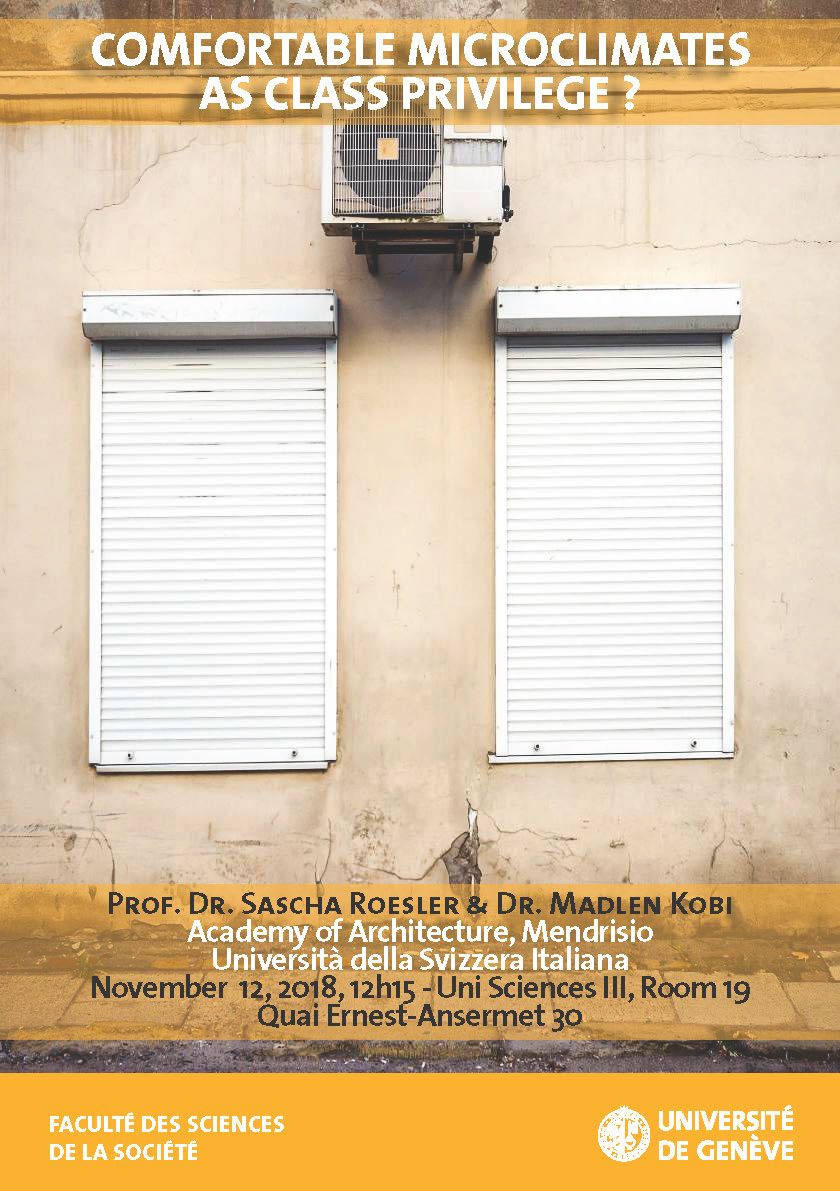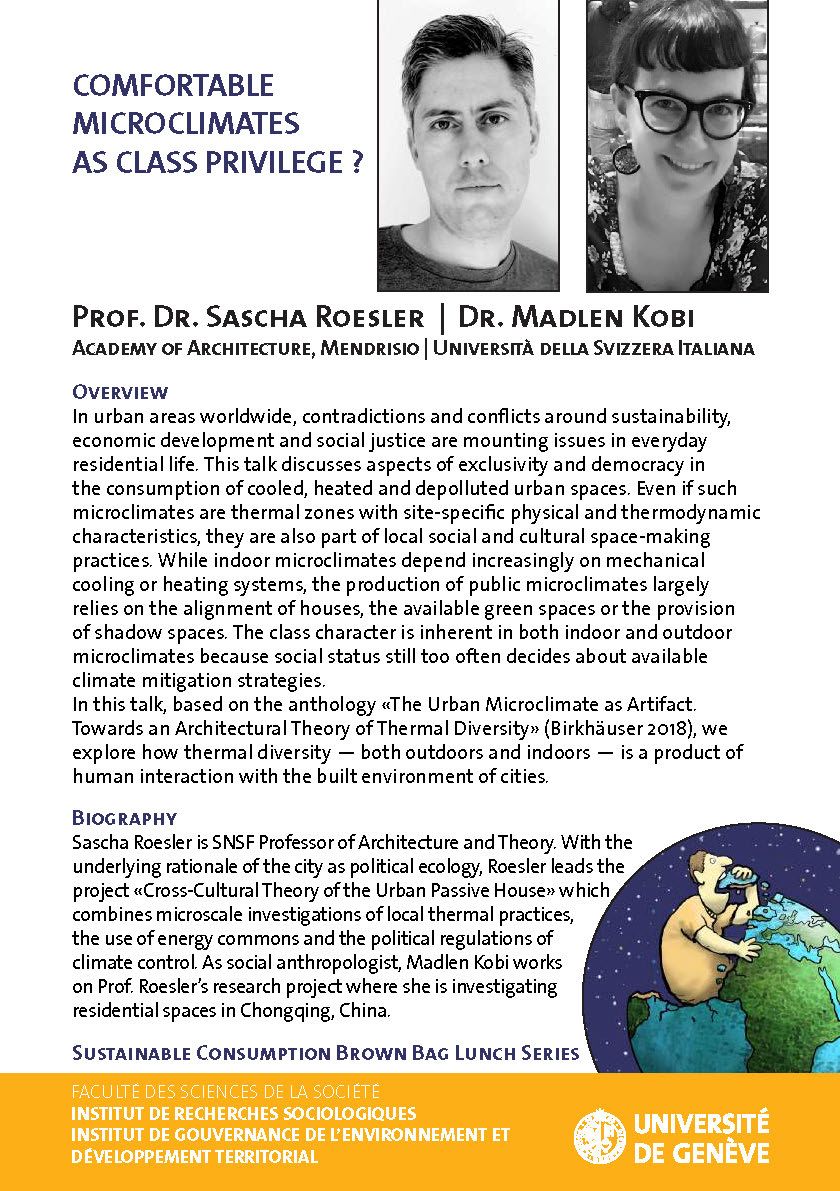

Comfortable Climates as Class Privilege
In urban areas worldwide, contradictions and conflicts around sustainability, economic development and social justice are mounting issues in everyday residential life. This talk discusses aspects of exclusivity and democracy in the consumption of cooled, heated and depolluted urban spaces. Even if such microclimates are thermal zones with site-specific physical and thermodynamic characteristics, they are also part of local social and cultural space-making practices. While indoor microclimates depend increasingly on mechanical cooling or heating systems, the production of public microclimates largely relies on the alignment of houses, the available green spaces or the provision of shadow spaces. The class character is inherent in both indoor and outdoor microclimates because social status still too often decides about available climate mitigation strategies.
In this talk, based on the anthology "The Urban Microclimate as Artifact. Towards an Architectural Theory of Thermal Diversity" (Birkhäuser 2018), we explore how thermal diversity - both outdoors and indoors - is a product of human interaction with the built environment of cities.